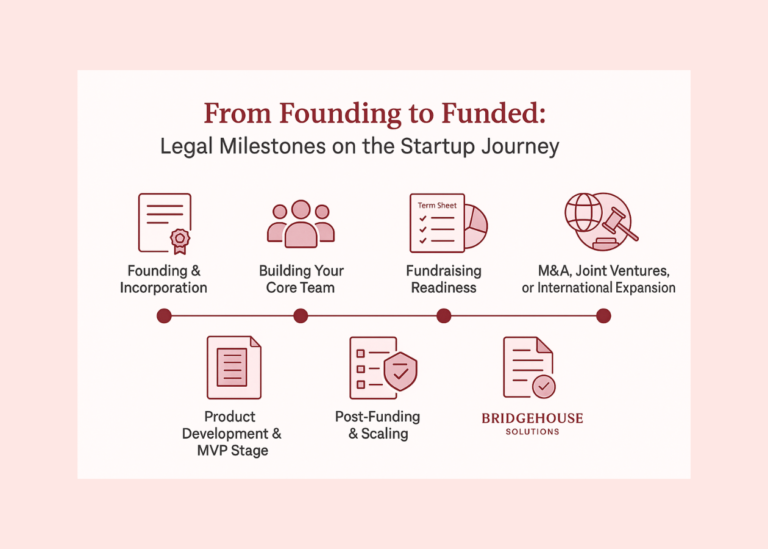
Startup Valuations – Myths vs Reality in Early-Stage Rounds
467 words, 2 minutes read time.

We blend strategy, compliance, and execution to deliver seamless support across every stage of your business journey. Whether you’re a startup scaling fast, a venture fund evaluating opportunities, or a family office building a portfolio — we bring clarity, structure, and insight.

How it works
We align business goals with actionable strategy. From structuring and compliance to funding and investor readiness — our advisory approach is hands-on, data-backed, and tailored to your unique growth stage.
We don’t just advise — we co-create, refine, and drive decisions that move your business forward.
We begin with a discovery call to understand your business, pain points, and immediate goals - whether it’s compliance, funding, structuring, or strategic advisory.
Based on your stage and sector, we design a practical, tailored roadmap - from entity structuring to due diligence, reporting, or investment support.
Our team of CAs, CSs, and Lawyers, works closely with you to implement solutions with precision - always on time, always compliant.
We stay involved, track progress, and adapt with your growth - helping you prepare for audits, investor conversations, and next-stage milestones.
FAQ
Blog



Launching a startup is exciting! The ideas are fresh, the pace is fast, and the energy…

